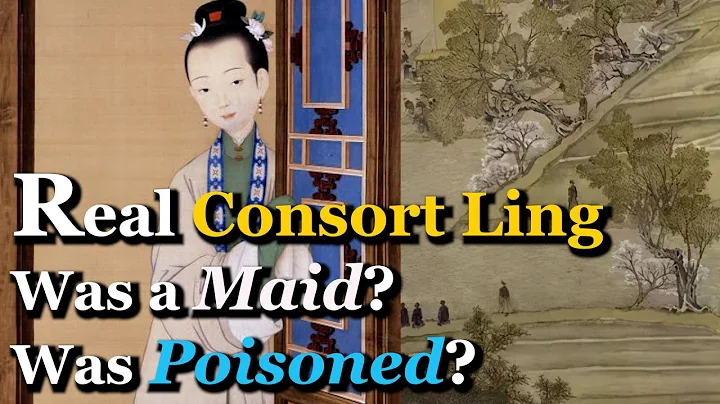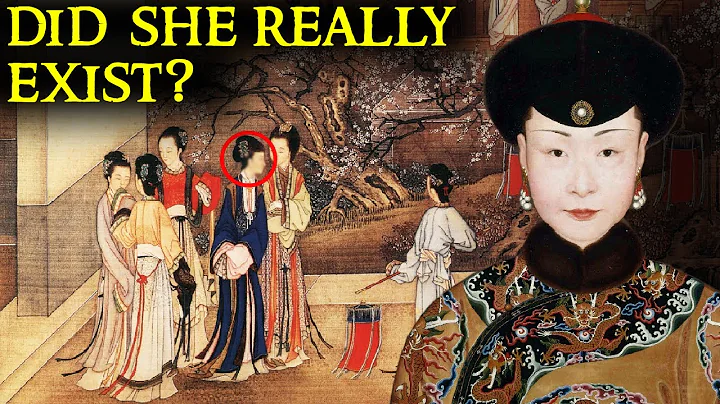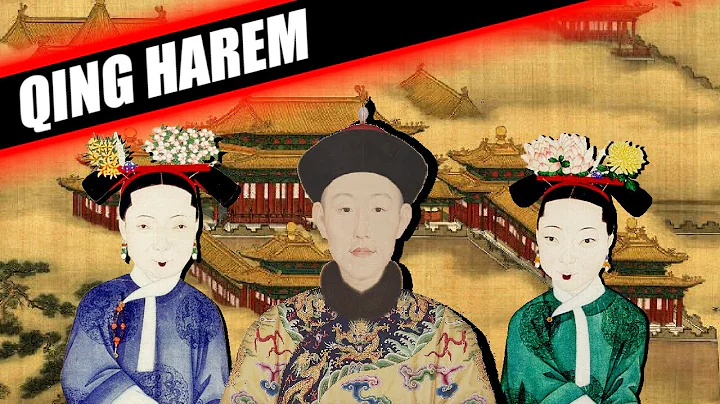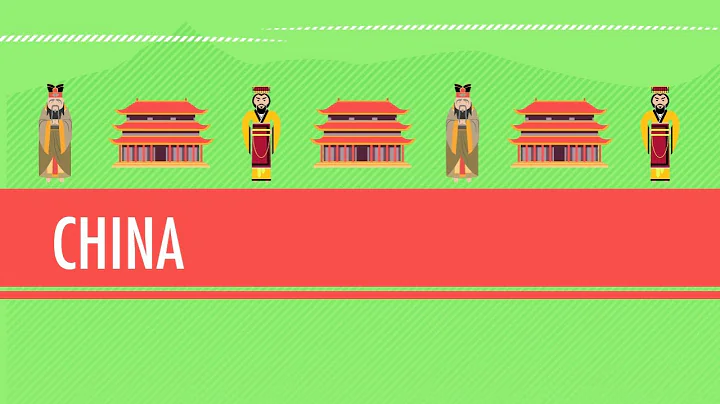The middle period of the Qianlong period coincided with the prosperous age of the Qing Dynasty, and both national power and official governance reached the peak of the feudal autocratic era. Not to mention national strength, at that time the Qing Dynasty's fiscal revenue accounted for one-third of the world's total, and its population was also one-third. As for the administration of officials, Qianlong was also very ruthless during this period, and a large number of corrupt officials were dismissed one after another.

At the beginning of Qianlong's accession to the throne, he emphasized in his edict: "The most respected person among ministers is integrity." He said this and did it. A group of high-ranking officials became the targets of his promotion of honesty and corruption. .
What the imperial censor can recall is: in the sixth year of Qianlong's reign, Minister of War Eshan was executed for taking a bribe of a thousand taels of silver; in the 22nd year, Hengwen, the governor of Yunnan and Guizhou who blackmailed his subordinates, was sentenced to death, and Jiang Zhou, the governor of Shanxi, embezzled money. Yin was beheaded; in the thirty-third year, Lianghuai Salt Administration Gao Heng, who had embezzled salt and introduced , was executed; in the thirty-fourth year, the former governor of Guizhou, Fang Shijun, and the current governor Liangqing, who engaged in mining for private purposes, were punished; in the thirty-seventh year, Yunnan Governor Qian Du blackmailed his subordinates and was executed.
The above is just one end of the list. It can be seen from it that Emperor Qianlong had never been merciful to corrupt officials 40 years ago, and he was not merciful at all, whether he was a relative of the emperor or a close confidant.

However, readers who know the history of the Qianlong Dynasty may not agree with this theory, because after all, there was a special case. In the sixth year of Qianlong's reign, Lu Zhuo, then governor of Zhejiang, tried Wang surnamed in Tongxiang County, Jiaxing Prefecture. During the family case, he accepted a bribe of 50,000 taels from Wang. After the incident, Emperor Qianlong personally made a ruling and spared Lu Zhuo's life.
Looking at the history of corruption eradication in the middle of Qianlong's reign, only Lu Zhuo was the only corrupt official to escape death. So does this mean that Qianlong's punishment of corruption was not thorough, and that personal affairs seemed to be mixed in?
The general history of the Lu Zhuo case
According to the records in Volume 337 of " Qing History Manuscript ", Lu Zhuo was a member of the Xianghuang Banner of the Han Army. He became an official as a county magistrate in the early years of Yongzheng and worked very hard in the implementation of the New Deal. , also very capable, deeply respected by Emperor Yongzheng . Later, he moved to the prefecture, supervising the grain road, inspecting envoys, and administrative envoys. In the twelfth year of Yongzheng's reign, he was promoted to governor of Fujian.

Lu Zhuo is still highly regarded in the official history. He has been a local official for a long time, has outstanding political achievements, and loves the people like a son. In the third year of Qianlong's reign, Lu Zhuo was transferred to the post of governor of Zhejiang and also in charge of salt affairs. During his tenure as governor of Zhejiang Province, Lu Zhuo did a lot of things that benefited the local area:
he petitioned to stop the annual silver cultivation in Caotang of Renhe and Haining counties, and reduced the silver rice of Jiaxing by two-tenths of the seven counties. He also reported on Chen's salt administration matters: please ban merchants from using short weighing scales; order the county to arrest illicit salt collectors without disturbing the people; do not arrest peddlers who carry salt on their shoulders; do not impose penalties on salt workers for lessons, etc.
In the sixth year of Qianlong's reign, Liu Wulong, the censor of Zuodu, was impeached by Lu Zhuo for accepting bribes. Qianlong ordered Depei, the governor of Fujian and Zhejiang, to investigate and deal with the case on the spot. The case implicated many Zhejiang officials, including Lu Shouzeng of Hangjiahu Road (who had been promoted to Shanxi Chief Envoy at this time) and Yang Jingzhen, the prefect of Jiaxing. Shortly after they were arrested and brought to the Zhejiang Governor's Yamen, they committed suicide out of fear of being punished.
The facts of Lu Zhuo's case are clear and the evidence is irrefutable. He should be punished according to the law. When Depei was about to file a petition to convict Qianlong, he found that thousands of people in Hangzhou came to the governor's office to complain to Lu Zhuo and beg the court to be lenient.

In the seventh year of Qianlong's reign, Lu Zhuo was planned to be hanged. Because Lu Zhuo took the initiative to plead guilty and returned all the stolen money, Qianlong was particularly merciful and changed the sentence to send Barkol to serve in the military station.
In the 16th year of Qianlong's reign, Emperor Qianlong visited Zhejiang on his southern tour. He inspected the seawall project. During this period, he heard the high praise of Lu Zhuo from the people of Zhejiang. Qianlong was serious about his mission and ordered to recall Lu Zhuo. . In the 20th year of Qianlong's reign, Lu Zhuo was awarded the title of Minister of Honglu Temple, and soon became the acting governor of Shaanxi.
Of course, Lu Zhuo’s second half of life was not very smooth, but this is not the focus of this article, so I skip it. The main discussion is why Qianlong wanted to be open to Lu Zhuowang and re-entrust him with a more important role?
A capable minister avoided death or there were other reasons
There is no doubt that Lu Zhuo was a famous capable minister in the Qianlong Dynasty. He eliminated the pros and cons, had outstanding political achievements, and was quite popular among the people. Therefore, many people believe that Qianlong let Lu Zhuo go because he was a good official.

The censor thought that this theory was untenable.As mentioned earlier, in the middle of Qianlong's reign, many high-ranking officials were dismissed due to corruption, and many of them were capable ministers. For example, Gao Heng, the Lianghuai salt administration official, was a typical capable minister. He was very good at rectifying salt affairs and catching smuggled salt. During his tenure, the court's salt tax continued to increase.
Moreover, Gao Heng's background is much tougher than that of Lu Zhuo. He is the biological brother of Imperial Concubine Huixian. But even though he was a relative of the country, Qianlong did not spare his life. There are also E Shan, the Minister of War, and Jiang Zhou, the governor of Shanxi. They are also officials, and their bribes and silver coins are not as much as Lu Zhuo's, but they can't escape death either.
This proves that political performance and ability were not the main reasons why Qianlong pardoned Lu Zhuo. In fact, those who can reach the positions of minister, governor, and governor are rarely mediocre.
So what saved Lu Zhuo’s life? The reason is not difficult to find. It is nothing more than two words - shrewdness.
Emperor Qianlong had a bad hobby, that is, he liked to collect rare treasures from all over the world, and he repeatedly issued decrees to ask local governors to pay tribute. It's called tribute, but to put it bluntly, it means Qianlong was extorting money from local governors.

The emperor's extortion of the governor will naturally form a vicious cycle. The governor cannot buy all kinds of rare and exotic treasures with his own money. There are only two ways, either to imitate Qianlong and blackmail his subordinates, or to blackmail the people.
But the problem is that blackmailing subordinates or people by a governor is a high-risk behavior. Once the standards are not controlled well, trouble can easily happen. The several high-ranking officials mentioned earlier were dismissed, and almost all of them were convicted of blackmailing their subordinates.
The governor's life was also quite difficult. Once something happened in order to get rid of guilt, Qianlong would often be involved. For example, in the 22nd year of Qianlong's reign, the governor of Yunnan and Guizhou, Hengwen, testified that the money he obtained was for tribute, and he put a shit basin on the emperor's head. Lu Zhuo, on the other hand, could grit his teeth and hold a dead-end attitude and not talk about anything related to the emperor.
Didn't Qianlong have any idea about the disadvantages of paying tribute? Of course not. As long as the governor is sensible and doesn't involve him, then there is room for discussion whether he lives or lives.
Like Lu Zhuo, in the forty-fifth year of Qianlong's reign, the governor of Yunnan and Guizhou Li Shiyao was also reported for blackmailing his subordinates, but was thoroughly investigated by and Shen .

Li Shiyao is also a shrewd person, and he also does not involve the emperor. He Shen was smarter. Seeing that Li Shiyao was so sensible, he decided not to give Li Shiyao a beheading decision. Instead, he drew up an beheading prison sentence . As a result, both of them gained Qianlong's respect. At this point, it is roughly clear.





















